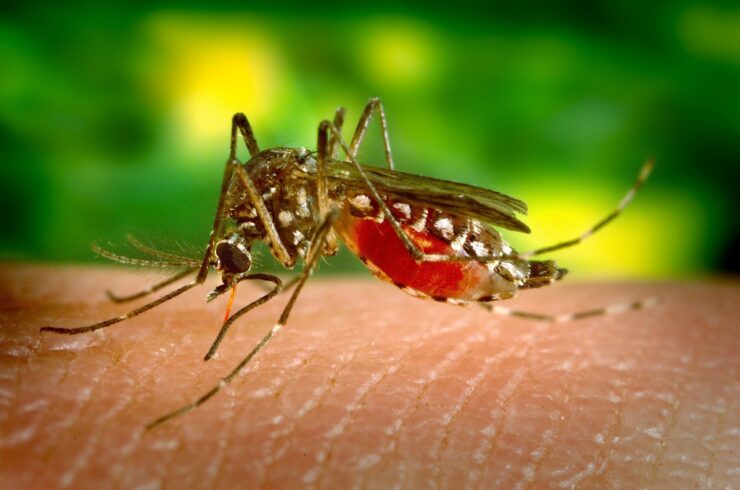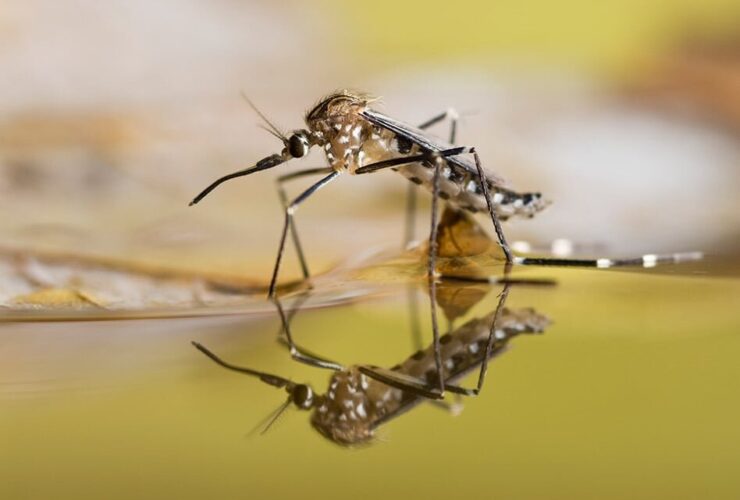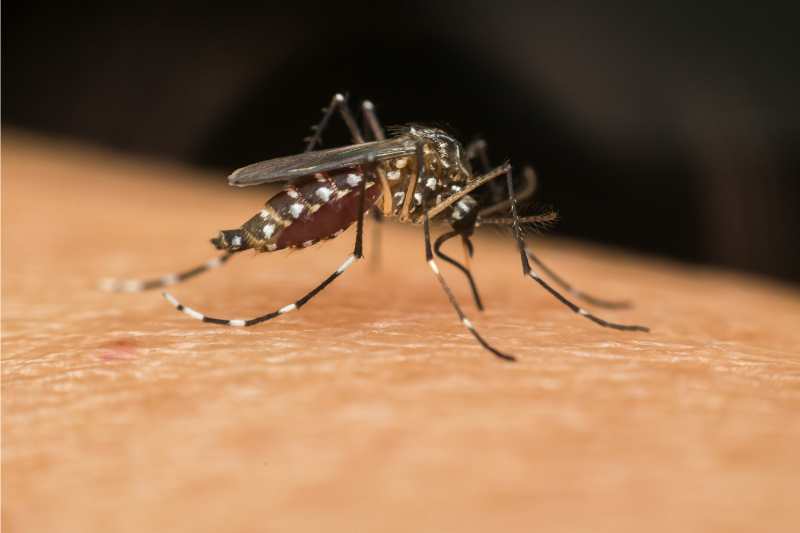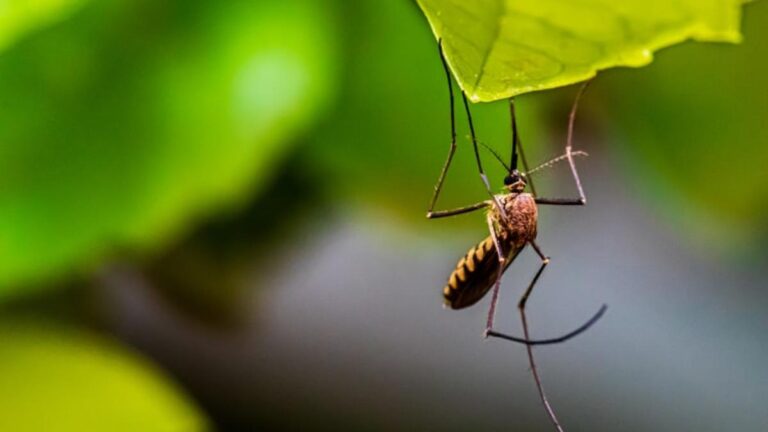Mosquitoes, those tiny but relentless pests, can turn a peaceful evening in your backyard into a nightmare of itching and irritation. Their presence is not only annoying but can also pose health risks due to mosquito-borne diseases. In this blog post, we will explore effective and natural strategies to reclaim your outdoor space from these bothersome insects.
Mosquitoes are not just annoying; they are carriers of diseases such as Zika, West Nile virus, and Dengue fever. As they bite, they can transmit these illnesses to humans, making it essential to protect yourself and your family from these disease vectors. We’ll begin by discussing the common mosquito species found in backyards and why they are attracted to certain areas.
Understanding Mosquitoes

Before we dive into the solutions, it’s essential to understand your adversary. Common mosquito species found in backyards include Aedes, Culex, and Anopheles. These blood-sucking insects are attracted to areas with stagnant water, where they lay their eggs. Understanding their habits and preferences is the first step in combating them effectively.
It’s not just about annoyance; mosquitoes can pose serious health risks. These pests can transmit diseases like Zika, West Nile virus, and Dengue fever. Therefore, the first step in your battle against mosquitoes is to prioritize safety. We’ll discuss how to protect yourself and your loved ones with repellents and appropriate clothing in this section.
Safety First
Protecting yourself from mosquito-borne diseases should be a top priority. Mosquitoes can transmit illnesses like Zika, West Nile virus, and Dengue fever. To safeguard against these threats, use mosquito repellents containing DEET or Picaridin and wear long-sleeved clothing. Safety is paramount when dealing with these disease vectors.
Not only are mosquitoes a nuisance, but they can also be carriers of serious diseases. Mosquito-borne illnesses such as Zika, West Nile virus, and Dengue fever can have severe consequences for human health. To protect yourself and your family, it’s crucial to take safety precautions when spending time outdoors.
Remove Standing Water

Mosquitoes thrive in stagnant water, making it essential to eliminate potential breeding grounds. Regularly inspect your backyard for items like clogged gutters, unused containers, and puddles. Keep flower pots well-drained and cover rain barrels to prevent access. By reducing stagnant water sources, you disrupt the mosquito life cycle.
One of the key factors that attract mosquitoes to your backyard is stagnant water. Mosquitoes lay their eggs in still water, and the larvae develop there. To effectively reduce the mosquito population, you must eliminate these breeding sites. This includes checking your property for any containers or areas where water can accumulate.
Choose Mosquito-Repelling Plants
Nature offers a helping hand in the form of mosquito-repelling plants. Citronella, lavender, marigold, and basil are excellent choices. These plants emit fragrances that mosquitoes find repulsive. Planting them strategically in your backyard can create a natural barrier against these pests.
While you can take several measures to deter mosquitoes, nature provides a natural solution: mosquito-repelling plants. These plants, such as citronella, lavender, marigold, and basil, release fragrances that mosquitoes find unpleasant. Planting these around your outdoor space can help create a mosquito-free zone. If this doesn’t help, ask professionals at manictimes.com.au on how to solve the mosquito problem in my house.
Maintain Your Lawn
A well-kept lawn is less inviting to mosquitoes. Regular mowing and removing tall grass and weeds reduce hiding spots for these insects. Ensure your lawn is adequately drained to prevent waterlogging, which can attract mosquitoes.
Maintaining your lawn is another critical aspect of mosquito control. Well-kept lawns are less attractive to mosquitoes. Regular mowing and trimming of tall grass and weeds reduce hiding spots for these insects. Additionally, ensuring proper drainage in your yard can prevent water accumulation, which is a magnet for mosquitoes.
Use Natural Repellents

Natural mosquito repellents like lemon eucalyptus oil are both effective and eco-friendly. You can make your repellent using essential oils like citronella, lavender, and peppermint. Dilute them with a carrier oil and apply to exposed skin. This homemade solution provides protection without harsh chemicals.
For those seeking natural alternatives, essential oils can be your allies in repelling mosquitoes. Essential oils like citronella, lavender, and peppermint have natural mosquito-repelling properties. By diluting these oils with a carrier oil and applying them to your skin, you can create an effective and chemical-free mosquito repellent.
Install Outdoor Fans
Believe it or not, outdoor fans can be your allies in the battle against mosquitoes. These fans disrupt mosquito flight, making it challenging for them to land on their preferred targets—namely, you and your family. Installing fans in seating areas can significantly reduce mosquito annoyance.
A surprising yet effective way to deter mosquitoes is by using outdoor fans. These fans disrupt mosquito flight patterns, making it difficult for them to land on you or your family. Installing fans in seating areas can create a mosquito-free zone, allowing you to enjoy your outdoor space in peace.
Create DIY Mosquito Traps
Exterminating mosquitoes can be a bit of a science project. But it doesn’t have to be complicated. By creating simple traps using common household items, you can effectively reduce the mosquito population in your backyard. We’ll explain how to make these traps and delve into the science behind their effectiveness.
Creating DIY mosquito traps can be an effective way to reduce the mosquito population in your backyard. These traps can be made using common household items, and they work by attracting and trapping mosquitoes. In this section, we’ll explain how to create these traps and provide insights into the science behind their effectiveness.
Avoid Peak Mosquito Activity Times

Mosquitoes have their preferred feeding times, and these align with specific periods of the day. To minimize your exposure to these pests, it’s advisable to stay indoors during dawn and dusk when mosquitoes are most active. We’ll delve into when these peak activity times occur and how you can adjust your outdoor activities accordingly.
To effectively avoid mosquito bites, it’s crucial to understand when these insects are most active. Mosquitoes have specific peak feeding times, which tend to be during dawn and dusk. During these periods, they are more likely to bite. We’ll provide insights into when these peak activity times occur and how you can adjust your outdoor activities accordingly.
Consider Birdhouses and Bats
Nature has its own pest control agents, and some of them are excellent at keeping mosquito populations in check. Birds and bats are natural predators of mosquitoes. In this section, we’ll discuss how you can attract these creatures to your backyard to help naturally control the mosquito population.
In addition to the strategies you implement, nature has its own mosquito control mechanisms. Birds and bats are natural predators of mosquitoes, and by attracting them to your backyard, you can help keep the mosquito population in check. We’ll provide tips on how to create an inviting environment for these creatures.
Conclusion
Summarize the key natural strategies to keep mosquitoes at bay. Encourage readers to enjoy a mosquito-free backyard. Emphasize the importance of combining multiple approaches for the most effective results. Offer a final piece of advice to inspire readers to reclaim their outdoor spaces from these pesky insects and enjoy their yards to the fullest.

